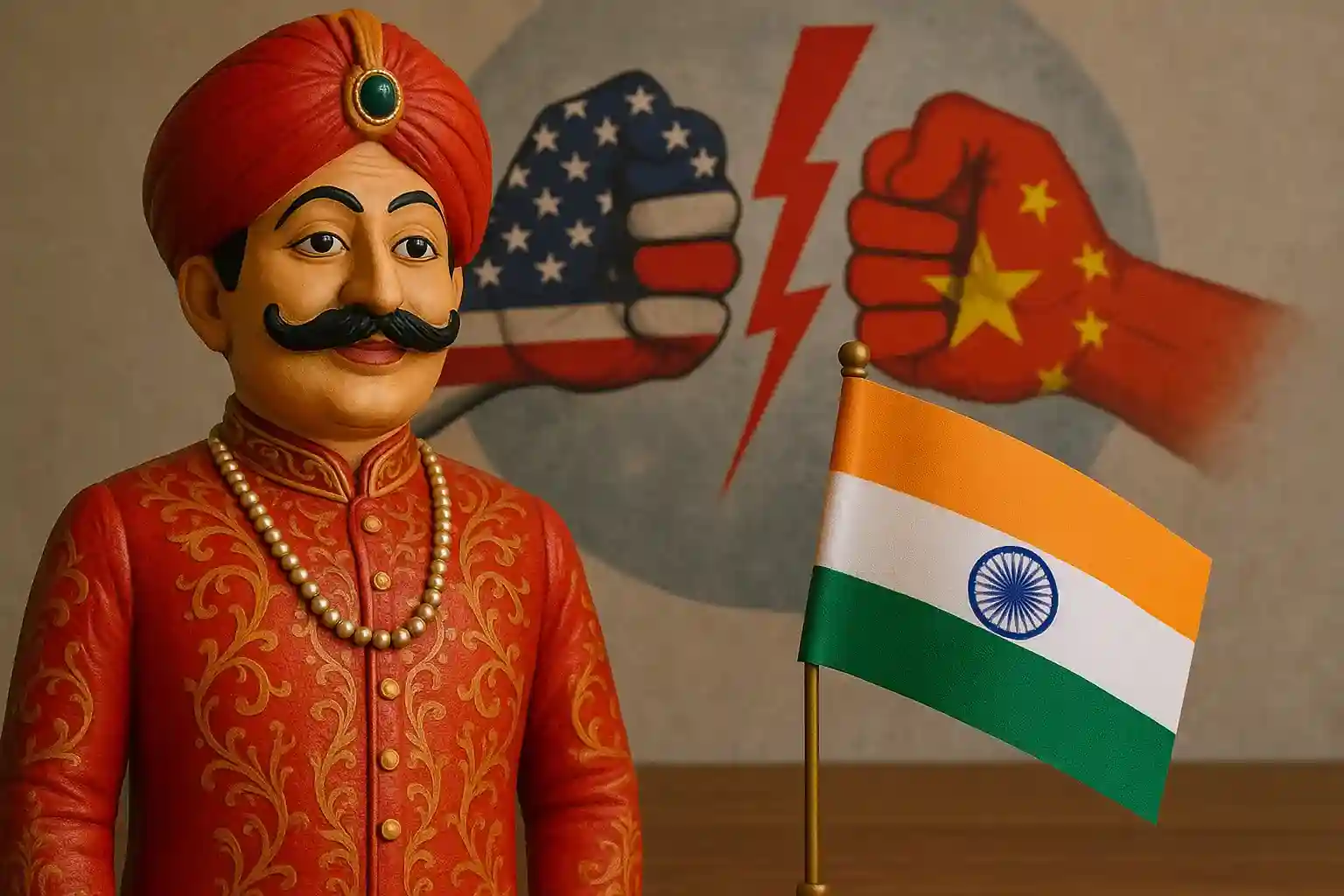India's 'Maharaja' Moment: Responding to Trump's Trade War

India's 'Maharaja' Moment: Responding to Trump's Trade War
As the United States prepares to impose a crippling 50% tariff on Indian goods, New Delhi’s response has been one not of panic, but of a calculated, almost serene confidence. Far from scrambling for concessions, the Modi administration appears to be seizing the moment, turning a severe economic threat into a strategic opportunity. This is India's "Maharaja Moment"—a display of economic sovereignty and strategic defiance against a long-time partner that has chosen to treat it as a "transactional adversary."
For years, Washington has sought to bring India closer into its orbit, framing the partnership as a democratic counterweight to China. However, President Trump's decision to punish India for its continued purchase of Russian oil—a move that simultaneously saw him de-escalate tariffs on China—has created a massive trust deficit. India’s calm, measured response is a direct message to Washington: its partnership is a choice, not a compulsion.
A Chess Match, Not a Panic
Rather than retaliating with tariffs of its own, India is executing a sophisticated geopolitical chess move. The government's public posture has been one of dialogue, emphasizing that its energy imports are a matter of necessity for its developing economy. Behind the scenes, however, India is leveraging its multi-alignment policy to its full advantage.
This strategic play includes:
- Deepening Ties with Non-Western Blocs: By actively strengthening engagements with both Russia and China, and openly nurturing "South-South" partnerships within the BRICS+ framework, India is signaling that it has viable alternatives. The optics of Prime Minister Modi meeting with his Russian and Chinese counterparts on the sidelines of major summits are a deliberate message to the West that India will not be forced to choose sides.
- Accelerating Self-Reliance: The tariff threat has provided a renewed impetus for India's domestic industrial and manufacturing goals. The government is refocusing on its "self-reliance" agenda, which aims to reduce import dependencies and build robust domestic supply chains. The logic is clear: the less reliant India is on any single export market, the more immune it becomes to such external pressures.
- Leveraging Energy Diplomacy: India is using its energy imports as a bargaining chip. By highlighting the hypocrisy of Western nations continuing their own trade with Russia while punishing India, New Delhi is positioning itself as a sovereign nation that makes decisions based on its own national interests, not external dictates.
A Declaration of Sovereignty
Ultimately, India's "Maharaja Moment" is a declaration of sovereignty. It is a testament to the belief that the country's economic weight and geopolitical importance make it too pivotal to be permanently alienated. By calmly weathering the storm and refusing to be drawn into a tit-for-tat trade war, India is asserting its place in a more multipolar world. The trade war, which was intended to weaken India, may instead become the very catalyst that strengthens its strategic autonomy and accelerates its pivot to a more independent global role.


